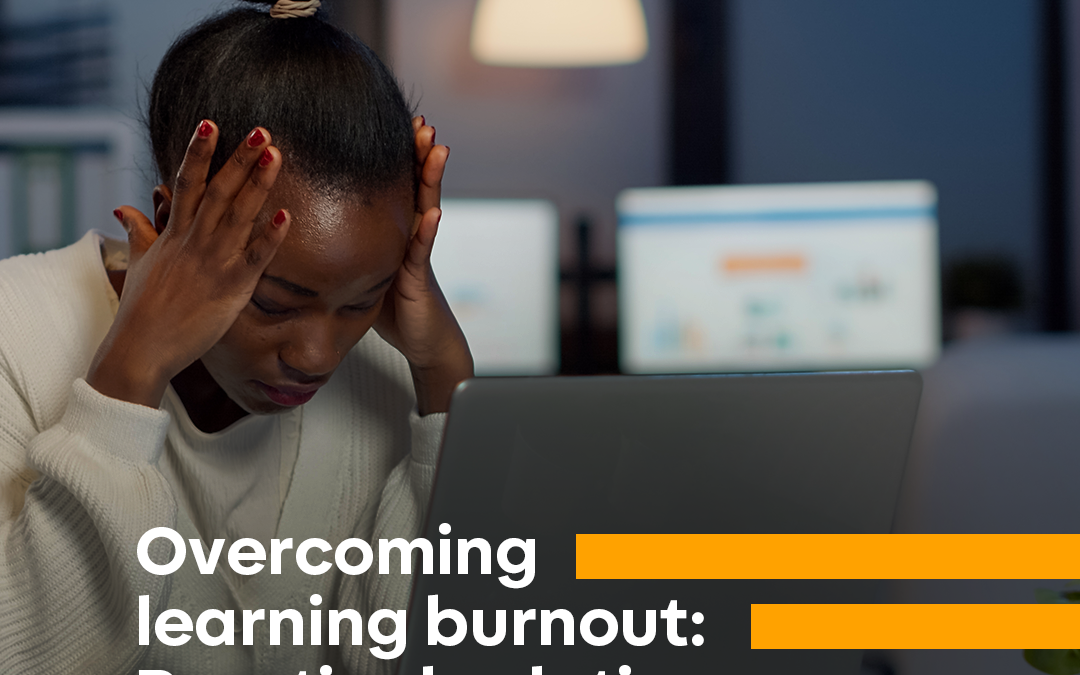Learning is a continuous process that is essential for growth and development. However, there are times when students experience burnout, which is a state of mental exhaustion resulting from prolonged stress. Burnout can be caused by various factors such as a heavy workload, lack of motivation, and inadequate rest. When students experience burnout, it becomes challenging to focus and retain information, which can affect their academic performance.
What are the causes of learning burnout ?
There are several reasons why learning burnout can occur. Firstly, if you are learning something that doesn’t align with your interests or goals, you may find it difficult to stay motivated. Similarly, if you are learning something that is too challenging, it can lead to feelings of frustration and burnout. Additionally, if you are studying for long periods without taking breaks, it can lead to mental and physical exhaustion, making it challenging to stay engaged. In this blog post, we will discuss how you can overcome learning burnout.
1. Take Breaks
Taking breaks is essential when experiencing burnout. You should take time off from studies to relax and recharge. Breaks can be in the form of short naps, walks, or engaging in activities that are not related to schoolwork. Breaks help to reduce stress and improve focus.
2. Create a Schedule
Creating a schedule for yourself is a helpful way to overcome burnout. You should create a study plan that is realistic and manageable. This plan should include study time and breaks. A schedule would help you stay organized and avoid procrastination, which can lead to burnout.
3. Exercise
Regular exercise is an excellent way to overcome burnout. Exercise helps to reduce stress and increase energy levels. One can engage in activities such as jogging, yoga, or swimming. Exercise can also improve mood and cognitive function, which can help with your academic performance.
4. Seek Support
When experiencing burnout, it is essential to seek support from family, friends, or a counselor. Talking to someone can help you reduce stress and provide a fresh perspective. Counselors can also provide guidance on coping mechanisms and strategies for managing burnout.
5. Practice Self-Care
Practicing self-care is vital when overcoming burnout. You should prioritize activities that promote your physical and mental well-being. These activities can include getting adequate sleep, eating a balanced diet, and engaging in hobbies or interests that you enjoy.
6. Set Realistic Goals
Setting realistic goals is essential when overcoming burnout. Set goals that are achievable and realistic as unrealistic goals can lead to stress and burnout. Setting goals helps you stay motivated and focused.
7. Find a Study Buddy
Studying with a friend or peer can provide you with much-needed support and encouragement. You can quiz each other, share notes, and hold each other accountable.
8.Change Your Environment
Sometimes a change of scenery can do wonders to boost your motivation. Try studying in a different location or rearranging your study area to make it more inviting.
In conclusion, learning burnout can be challenging, but it is manageable. You can overcome burnout by taking breaks, creating a schedule, exercising, seeking support, practicing self-care, and setting realistic goals. By implementing these strategies, one can reduce stress, increase focus, and improve academic performance.






















